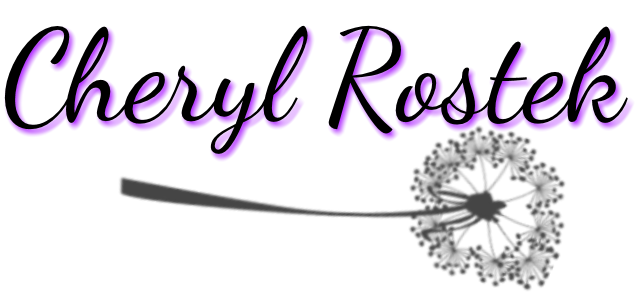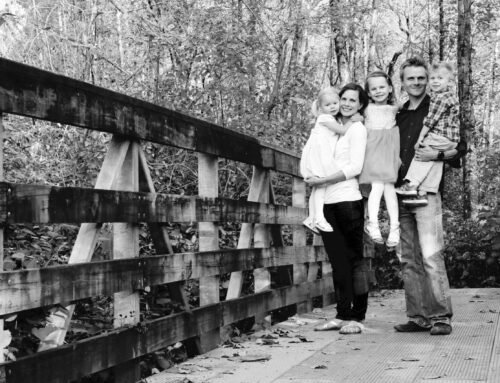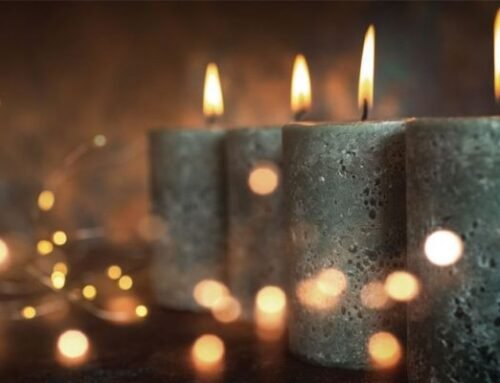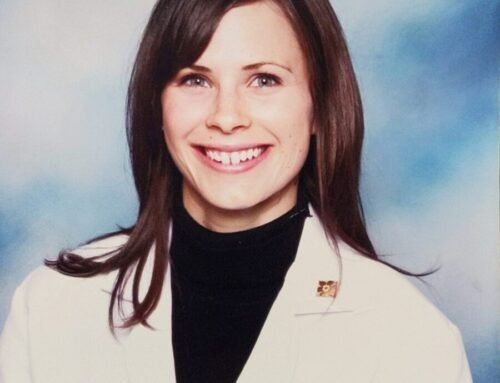Survivor Anniversary
A week ago my friend, Sarah, asked me, “How does it feel? Your six year survivor anniversary is approaching?”
Honestly, I hadn’t even kinda thought about it. The weather has been hot and I’ve been swimming in the lake with friends and family on the weekend and squeezing in a weekday lunch time paddle with my husband, cramming in as much fun as possible before the rainy weather starts. There’s been no time to think about cancer! (Isn’t that a good fantastic thing!?)
But as my children left for school and I reread Sarah’s message I remembered my radiation oncologist’s words six years ago: “you’re the third glioblastoma patient I have seen this week who is really doing well.”
I didn’t feel like I was doing well. I had trouble breathing deeply and my chest was always clawing up into my throat. I startled easily, my vision felt unsteady and my mind was a swirling mess of all the things I had to get done, you know: appointments and feeding my kids and changing diapers and updating our wills and processing that I was going to die in one year or so.
However, what really got me now, remembering this appointment, was what the doctor said next.
“I recently had a patient survive six years.” The doctor smiled at me encouragingly. “She just passed away.”
At the time, six years of survival felt like a pipe dream. If I can survive six times longer than they’re forecasting for me, I will be dancing with delight! I’d thought. At the five year survival mark I became part of the five percent of people who live five years with glioblastoma. This was a big deal! It coincided with my fortieth birthday which was amazing, I made it to forty! Though less overt, as this five year milestone passed, six years, in a way, became my new goal. A more robust expiry date (six years is longer than five) and yet a more subtle one (cancer now lives in the background, no longer front of mind).
Now here I am at the six year mark.
Through out this past year, my oncologist’s words have popped into my mind and threaten to terrify and paralyze me, six years…She just passed away.
What I’ve learned so far
Trauma response
Our brain is a fascinatingly brilliant organ. It has an incredible system for protecting us. When the amygdala senses danger, it alarms like a smoke detector warning us with a surge of cortisol and adrenaline preparing us to fight or flee (1). The problem is cancer trauma- being told I was imminently dying while I still had two babies in my arms and a preschooler always reaching for my hand – put my fire detector in hypervigilance mode. I flinched at noises, startled at unexpected movements, and felt light-headed in busy surroundings. It has taken years of counseling, meditation practice, mindfulness, reading and learning to rewire these responses and regain a sense of calm. So that instead of letting my oncologist’s words send me into panic and flight mode, trying to bolt as fast as I can from my fear, I can pause and remember the teaching of Pema Chodron: when we turn and face our enemies, their arrows turn into flowers. When I turn and face my fear of cancer returning and of death and say hello to them, I calm fear instead of summoning it to pursue and devour me.
Let’s talk about death and finitude
As such I have immersed myself in learning about our culture’s strange aversion (fear) to talking about one of the most universal human experiences: death. If instead of running from death, I turn and face her she becomes less scary.
As physician L.S. Dugdale describes in her book The lost art of dying comfortable modern Westerners need reminders of our mortality, similar to ancient officials who engaged memento mori (remember you will die); these leaders hired accompaniments who whispered memento mori in their ears, lest they began believing that they were immortal. Dugdale continues, “none of us escapes our appointment with death. The solution is neither to flee it nor to seek it out. Rather each day we must prepare for [it]. Death is part of living.”
Similarly, Oliver Burkeman in his book Four Thousand Weeks describes that since the industrial revolution our culture has strangely commoditized time. We “struggle against the distressing constraints of reality.” He says, “the assumption that time is something we can possess or control is the unspoken premise of almost all our thinking about the future, our planning, and goal setting and worrying. So its a constant source of anxiety and agitation, because our expectations are forever running up against the stubborn reality that time isn’t in our possession and can’t be brought under control.” Terminal diagnosis or not, there is never enough time. Burkeman continues, echoing Chodron’s sentiments: “the more you confront the facts of finitude…and work with them rather than against them – the more productive, meaningful and joyful life becomes.”
Ancient wisdom
Furthermore, I frequently lean on the ancient Japanese wisdom of wabi-sabi: finding beauty in the impermanence, imperfection and incompletion of life. A sort of surrender to the waves of the universe, accepting the things I cannot change, and changing the things I can.
Living out my learning
Agency
Therefore, six years since my diagnosis, remembering the words of my oncologist, I am not toppled. I am proud of who I have become through my agency and hard, diligent, thoughtful personal work. I am proud of the ownership that I have taken in my health – mentally, physically, and spiritually.
Things will be what they will be. But, gosh darn it I will work my hands into all that I can to better them and to believe with faith that I will prevail in the end. Yet, I’ll hold this with the tension of the brutal facts of my reality, which makes my life better in a memento mori sort of way.
A beacon of hope and compassionate understanding
Therefore, I hold my survivor anniversary as a beacon of hope for others, but also as a handshake of compassionate understanding. I’ve been there taking the broken pieces of my life and painstakingly making them into something beautiful. I’ve been there in the grief, I’ve been in the celebration of clear scans and I’ve been there in the paralyzing scanxiety in between.
Here I am six years later. I’m a miracle. I’m a force of volition, grit and determination. I am lucky and privileged and loved. All these things have brought me to this place- some I can take credit for, a lot I cannot. Which means, while I do not understand why the universe has placed the gift of life into my hands, I will take it with gratitude and transform it into a voice – my voice. And I will share my voice with my world, because my voice matters.
Thank you community. Thank you God. Thank you ears which listen to what I have to say. Last week I journalled:
These scrawls etched in notebooks
and plunked onto the screen –
This nectar,
is my offering
May the nectar of my words find you however you need it today: encouraging, empowering, comforting, present. They are my gift to you.
With love
xo
Cheryl
Ps.
In retrospect I see how big this year has been for me. Diligent, fruitful, painstakingly hard work on my memoir. Which includes a sense of “finding myself” and really sorting through the shards of life post-diagnosis. Continued leaps of personal growth, corresponding with a lot of reading and self-reflection and continued counselling. Truly loving life in a gutsy, increasingly vulnerable way with a family life that is more beautiful and challenging than I could have ever imagined family to be. So yeah, in case I didn’t make it clear, today is worth celebrating – BIG TIME!
Notes
- The amygdala is a smoke detector… Wisdom from the brilliant Dr. Bessel Van Der Kolk in his book The body keeps the score.








Congratulations! It’s like a birthday of sorts for you! Eat cake and ice cream. Celebrate!
I’m so glad you’re here with us and celebrating this day! What a miracle and answer to prayer indeed! Praying and dreaming with you for many more…
Love, Carmen
Thank you Carmen. xo
Lovely, inspiring article. Thanks for helping me keep my feet planted strongly on the ground and my eyes calmly and unwaveringly focused on my next steps.
Thank you for your comment, I’m so grateful my words bring you calm. May you find lots of grace and love on your journey. xo
Thanks for sharing your journey. Your words are a lovely gift of wisdom and grace. Praise God for six years, and for all He has done and is doing! May He continues to provide healing and restoration in every part of your life.
Thank you so much Laura. xo🙌
Thank you for sharing your experience!
I was dxd October 2015, and now share my Halloween birthday with my cranioversary. My son is now 4, and I’m turning 38. I am thankful for family support, the nurses that cared for me in the ICU (I may not have been a kind appreciative patient!), Dr.Drappstz, yoga, nature, music, and essential oils What a whirlwind of feelings! ANXIETY, ACCOMPLISHMENT, PRIDE, FEAR, HOPE, DISAPPOINTMENT, CALM, HAPPINESS
my.doterra.com/brookelynnb
Your journey is one year ahead of mine and my birthday is one day after yours! Wishing you peace and love for your journey. xo
I have just re-read your September and October blog entries and am so moved by your thoughts. My first inclination is to say ‘congratulations’ on the six year mark, but it doesn’t seem the right word… what I mean is that I am so very happy for you. I am learning much from your journey. I intend to search out some of your reading recommendations. Oliver Burkeman’s book Four Thousand Weeks might be good for me. You would think that one who is retired would not need help with time management, but I find I get very little accomplished these days. The weeks roll by… here we are in October with our first little skiff of snow on the ground this morning. I liked especially your reminder to me to be grateful for my body and to follow the pathway of love. So much of what you wrote chords deeply with my own journal writing.
Did I send you an email with an update on what has ensued for me these last 20+ years? I know I intended to, but I cannot find it in my ‘sent’ archive, so did I just dream it?